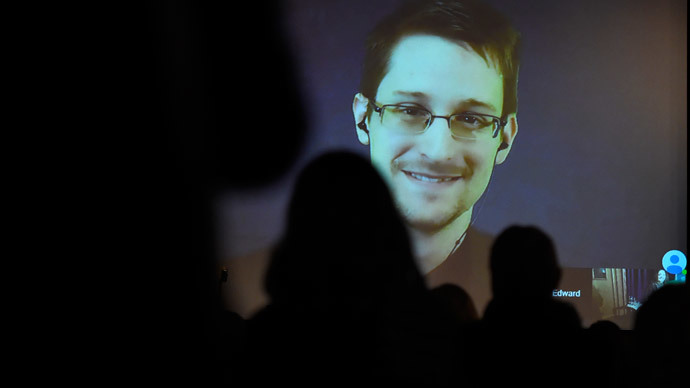‘Hackers bigger concern for web users than NSA spying’

Web users are more concerned about hackers getting into their bank accounts or stealing trade secrets than about the NSA which is simply doing its job by spying on foreign nations, Jeffrey Carr, cyber security expert and CEO of Taia Global, told RT.
The latest Edward Snowden leaks revealed the US is preparing for future cyber wars.
RT:New documents revealed by whistleblower Edward Snowden show that the US military is preparing for a new area of battle – cyber warfare. Could you tells us in detail how it is planning to tackle potential enemies?
Jeffrey Carr: Well, it’s not new. Cyber warfare has been around for many years. The Russian government, the US government, the Chinese government, the Korean government, we’ve all been planning for this; it’s a natural extension of conflict except now we are moving it to cyber space. Hopefully, there won’t be a cyber war, but it pays to be prepared. I think that’s really what we are looking at here now. The other thing is the Snowden revelations didn’t have to do with warfare, they had to with espionage. And espionage of course happens all the time. And I think what we are really referring to is not so much warfare as it is spying.
RT:It is becoming more evident that the US is trying to expand its influence over cyber space. What implications could this have on regular internet users and the digital world?
JC: I don’t think you really need to worry too much about the NSA. I don’t think most people in my local community do. People are more concerned with hackers accessing our bank accounts or companies are more concerned with competitors stealing their information, their trade secrets. What the NSA has the authority to do is spying on foreign nations and so it’s simply doing its job by making it as efficient as possible - just like every intelligence agency.

READ MORE:‘Dangerous as terrorists’: Snowden leaks reveal GCHQ stores journalists’ data
RT:One of the US military's main goals in conducting cyber warfare is to disrupt the enemy's crucial infrastructure such as transportation or communications. How legal is targeting and disrupting civilian infrastructure?
JC: That’s pretty long-standing prohibition in attacking civilian infrastructure. I think the NSA is probably being misquoted or the documents were misunderstood… There is nothing that I’ve read in the news - and I’ve been studying cyber warfare here in the US and in other countries – to suggest that the civilian infrastructure is being targeted in times of war. I mean that’s just not permitted, that would be illegal.
RT:Do you think the revelations that America sees the internet as a new battlefield will push others to expand their cyber capabilities both offensive and defensive?
JC: It’s an ongoing game; I mean that’s a good choice of words. The espionage is the oldest, maybe the second oldest profession and because the world has become connected in cyber space and we have sort of constructed this artificial envelope that we all live within. Being able to access that envelope through digital means is the way that every country will be conducting its spying and surveillance activities from now on.
MORE:
The statements, views and opinions expressed in this column are solely those of the author and do not necessarily represent those of RT.
The statements, views and opinions expressed in this column are solely those of the author and do not necessarily represent those of RT.












